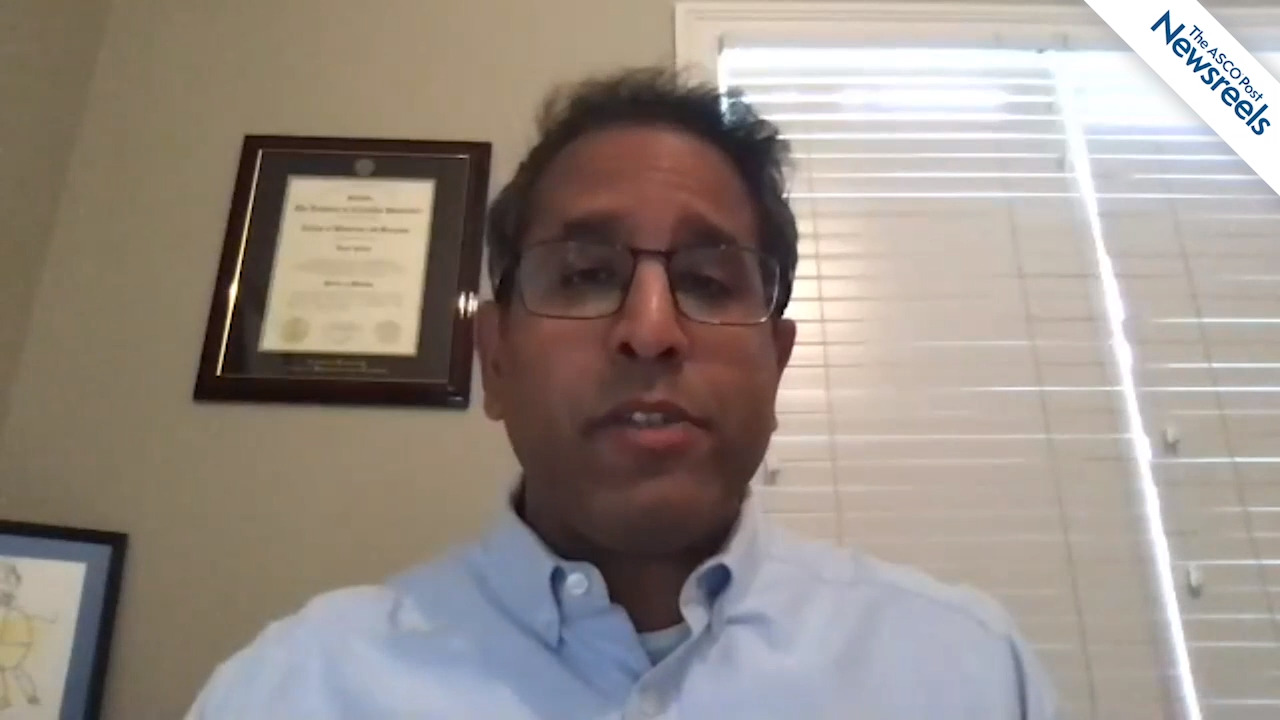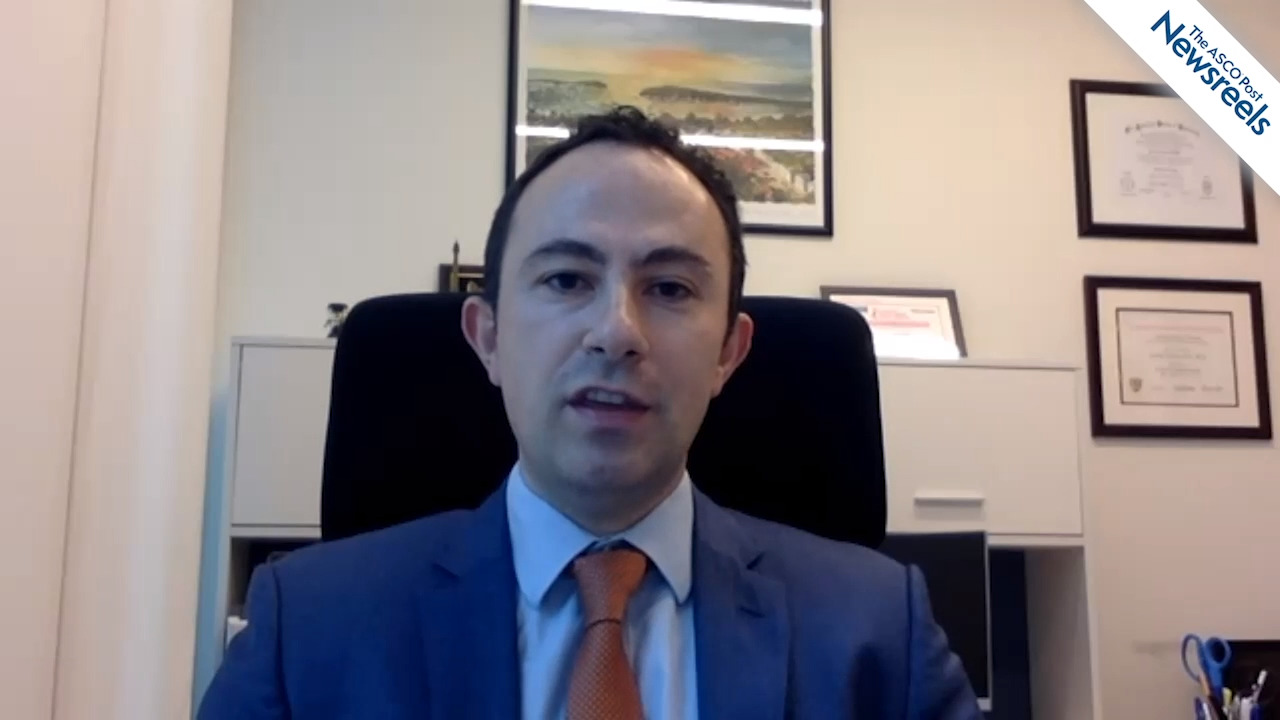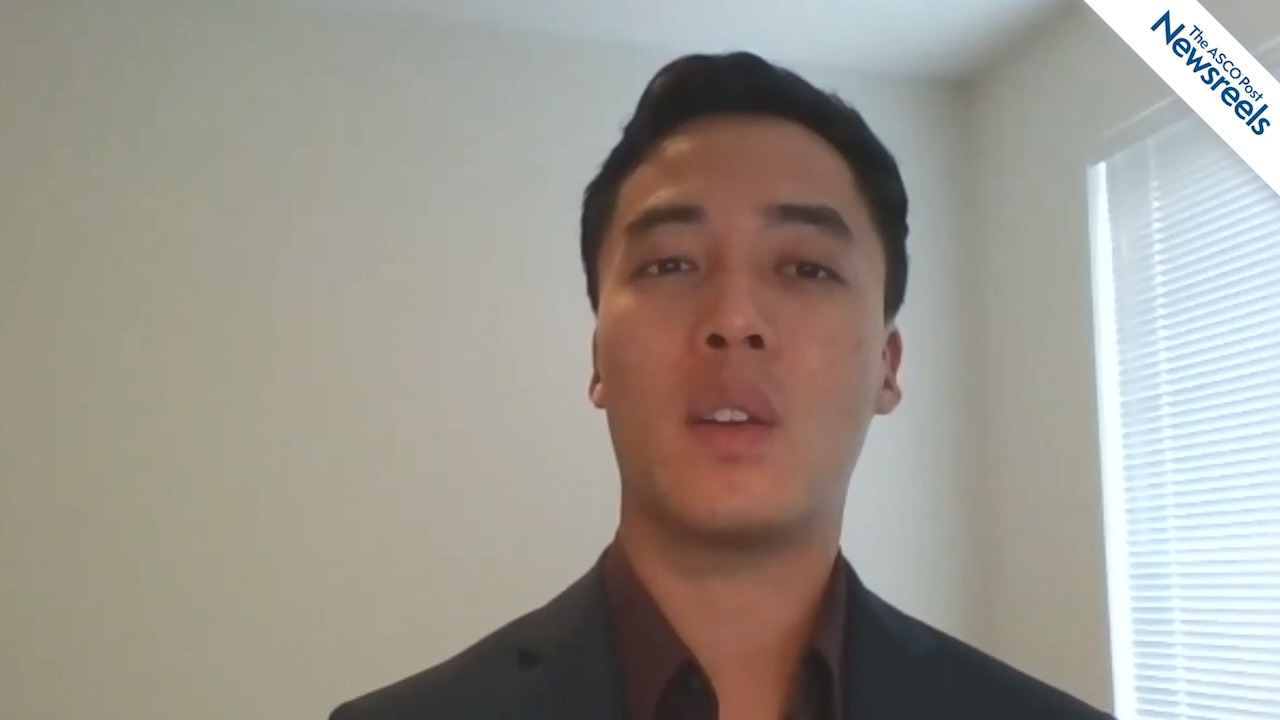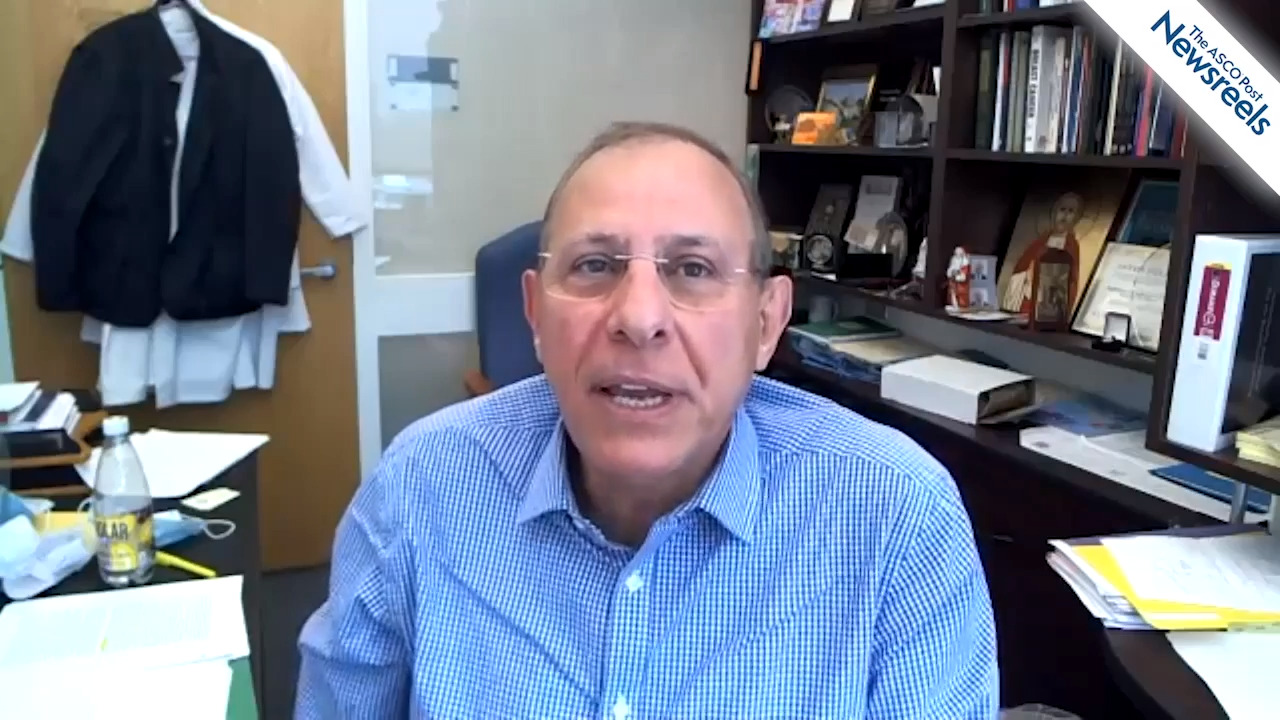Cynthia Menard, MD, on Prostate Cancer: PSMA PET- and CT-Guided Intensification of Radiotherapy
2020 ASTRO Annual Meeting
Cynthia Menard, MD, of the University of Montreal, discusses a study on the use of prostate-specific membrane antigen PET and CT to guide treatment. The scans led to high rates of new lesion detection and therefore intensification of radiotherapy for patients with prostate cancer, without an increase in side effects (Abstract 34).
The ASCO Post Staff
Vinai Gondi, MD, of Northwestern Medicine Cancer Center and Northwestern Medicine Proton Center, discusses the preliminary results of an NRG Oncology study of radiotherapy dose intensification using intensity-modulated radiotherapy vs standard-dose radiotherapy with temozolomide in patients with newly diagnosed glioblastoma (Abstract 42).
The ASCO Post Staff
Youssef Zeidan, MD, PhD, of the American University of Beirut Medical Center, discusses study findings showing that breast-conserving surgery, whole-breast irradiation, and trastuzumab offer effective local tumor control for patients with HER2-positive breast cancer. An additional radiation boost does not seem to further improve outcomes (Abstract 52).
The ASCO Post Staff
Justin Oh, MD, of the University of British Columbia, discusses results from the ASCENDE-RT trial, which compared a low-dose–rate brachytherapy boost to a dose-escalated external-beam boost for patients with high- and intermediate-risk prostate cancers (Abstract 127).
The ASCO Post Staff
Alphonse G. Taghian, MD, PhD, of Massachusetts General Hospital, reviews the 10-year follow-up of a dose-escalation trial studying accelerated partial-breast irradiation and discusses the optimal dose, adverse effects, and cosmetic outcomes (Abstract 25).
The ASCO Post Staff
Neha Vapiwala, MD, of the University of Pennsylvania, who served as a discussant for LBA1, summarizes her review of this study of patients with prostate cancer who had biochemical recurrence in the post-prostatectomy setting, who were candidates for salvage radiotherapy, and who received either conventional imaging or PET scans to help determine the course of treatment.





